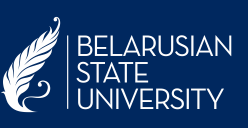
 |
Ïåäàãîãèêà èíôîðìàòèêè |
PEDAGOGY OF COMPUTER SCIENCE |
ISSN 2708-4124 |
|
HORIZONS OF USE OF ARTIFICIAL INTELLIGENCE IN EDUCATION Bogdanova D. A. FULL TEXT: PDF (Rus) Abstract Artificial intelligence (AI) has a number of advantages that are of interest to educational systems. Clearly, this advanced technology has the potential to facilitate easier access to learning, automate managerial and administrative functions in academic institutions, and streamline curricula. As a virtual platform, it can create the best professional environment for teachers and students. Artificial intelligence can be used to evaluate work and exams. What's more, it helps learners navigate different content streams and personalize learning according to their strengths and weaknesses. The material considers foreign publications of a predominantly academic nature, not older than 15 years, available for review, with a description of examples of the use of artificial intelligence in education. In particular, examples of the use of artificial intelligence in the following areas are considered: solving administrative problems: intelligent learning systems (ITS), chat bots); use of AI for learning and assessment: intelligent learning systems (ILEs), immersive technologies, adaptive and intelligent networked educational systems, learning network orchestrators, AI-enabled reading and language learning, use of robots, support for academic integrity; applications aimed at teachers; dual teacher model; the issue of children's privacy. Key words Artificial intelligence (AI), robot, cobot, chat-bot, intelligent tutoring systems, personalized learning, automated writing evaluation, learning network orchestrator, immersive technologies, personal data, privacy, intelligent tutoring system, àdaptive and intelligent Web-based educational systems, proctoring. Received: 09/07/2023; accepted for publication: 09/14/2023. For citation: ________________________________________ Bogdanova D.A. Horizons of use of artificial intelligence in education. Electronic scientific and methodological journal “Pedagogy of computer science”. 2023;1-2. Http://pcs.bsu.by/2023_1-2/2ru.pdf Content is available under license Creative Commons Attribution-NonCommercial-ShareAlike 4.0 International License. About the authors: D. A. Bogdanova
References 1. Azoulay A. How Can Artificial Intelligence Enhance Education? [Electronic resource]. UNESCO. News. 2019. February 18. Available at: https://en.unesco.org/news/how-can-artificial-intelligence-enhance-education (date of access: 13.07.2023). 2. Giannini S. Generative AI and the future of education [Electronic resource]. UNESCO. UNESDOC. 2023. July. Available at: https://unesdoc.unesco.org/ark:/48223/pf0000385877 (date of access: 31.07.2023). 3. Chen L. et al. Artificial Intelligence in Education: A Review [Electronic resource]. IEEE Xplore. 2020. April, 17. Available at: https://ieeexplore.ieee.org/abstract/document/9069875 (date of access: 13.07.2023). 4. Benefits Of Artificial Intelligence In Education [Electronic resource]. AI-CHAT GPT. 2023. February, 5. Available at: https://aichatgpt.co.za/benefits-of-artificial-intelligence-in-education-pdf/ (date of access: 13.07.2023). 5. Artificial intelligence [Electronic resource]. Oxford reference. Available at: https://www.oxfordreference.com/display/10.1093/oi/authority.20110803095426960#:~:text= 6. Baker R. et al. Educational data mining and learning analytics [Electronic resource]. Wiley. Online library. 2016. November, 16. Available at: https://scholar.google.ru/citations?view_op=view_citation&hl=en&user=hvs8PEoAAAAJ&citation_for_view=hvs8PEoAAAAJ:i2xiXl-TujoC (date of access: 13.07.2023). 7. AI and education: guidance for policy-makers [Electronic resource]. UNESCO. UNESDOC. Available at: https://unesdoc.unesco.org/ark:/48223/pf0000376709 (date of access: 13.07.2023). 8. Du Boulay B. et al. Empowering educators to be AI-ready [Electronic resource]. Science Direct. 2022. January, 1. Available at: https://scholar.google.ru/citations?view_op=view_citation&hl=en&user=QBJBsuMAAAAJ&cstart=20&pagesize=80&citation_for_view=QBJBsuMAAAAJ:Zh0EY9V9P6UC (date of access: 13.07.2023). 9. I would blushed if I could [Electronic resource]. UNESCO. UNESDOC. Available at: https://en.unesco.org/EQUALS/voice-assistants] (date of access: 13.07.2023). 10. Seldon, A., Abidoye, O.: The fourth education revolution: will artificial intelligence liberate or infantilise humanity. Buckingham, University of Buckingham, 2018. 11. Luckin R. Towards artificial intelligence-based assessment systems [Electronic resource]. Research Gate. 2017. February. Available at: https://www.researchgate.net/publication/314088884_Towards_artificial_intelligence-based_assessment_systems (date of access: 13.07.2023). 12. Rus V., D’Mello S., Hu X. and Graesser A. Recent advances in conversational intelligent tutoring systems. AI Mag., vol. 34, no. 3. 2013. September. 13. Dean D. Jr., Kuhn D. Direct instruction vs discovery: The long view [Electronic resource]. Wiley. Online library. 2007. April 03. Available at: https://scholar.google.ru/scholar?q=Dean+Jr.+and+Kuhn,+2007&hl=en&as_sdt=0&as_vis=1&oi=scholart (date of access: 13.07.2023). 14. Holstein et al., Student Learning Benefits of a Mixed-Reality Teacher Awareness Tool in AI-Enhanced Classrooms [Electronic resource]. International Conference on Artificial Intelligence in Education AIED 2018. pp 154-168. Available at: https://link.springer.com/chapter/10.1007/978-3-319-93843-1_12) (date of access: 13.07.2023). 15. Roll I., Wylie R. Evolution and revolution in artificial intelligence in education [Electronic resource]. Research Gate. 2016. February. Available at: http://csi.asu.edu/wp-content/uploads/2018/01/IJAIED25th_Roll-Wylie2.pdf (date of access: 13.07.2023). 16. Pokrivcakova S. Preparing teachers for the application of AI-powered technologies in foreign language education [Electronic resource]. Academia. Vol. 7, no. 3. 2019. December. Available at: https://www.academia.edu/41534581/Preparing_teachers_for_the_application_of_AI_powered_technologies_in_foreign_language_education (date of access: 13.07.2023). 17. Graham S. A Revised Writer(s)-Within-Community Model of Writing [Electronic resource]. Educational Psychologist. vol.53. 2018. Available at: https://www.tandfonline.com/doi/abs/10.1080/00461520.2018.1481406 (date of access: 13.07.2023). 18. Nietzel M. T. More Than Half Of College Students Believe Using ChatGPT To Complete Assignments Is Cheating [Electronic resource]. Forbes. 2023. March 20. Available at: https://www.forbes.com/sites/michaeltnietzel/2023/03/20/more-than-half-of-college-students-believe-using-chatgpt-to-complete-assignments-is-cheating/?sh=301f9b9118f9 (date of access: 13.07.2023). 19. Children’s right to privacy in the digital age must be improved [Electronic resource]. United Nations. Human Rights. 2021. July 15. Available at: https://www.ohchr.org/en/stories/2021/07/childrens-right-privacy-digital-age-must-be-improved (date of access: 13.07.2023). 20. The Case for Better Governance of Children’s Data: A Manifesto [Electronic resource]. UNISEF. Manifesto. 2021. May. Available at: https://www.unicef.org/globalinsight/media/1741/file/UNICEF%20Global%20Insight%20Da20Governance%20Manifesto.pdf (date of access: 13.07.2023). |